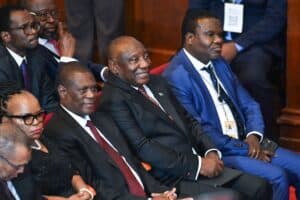After years of teaching African languages as subjects, the focus now shifts to using them as vehicles for teaching, learning, and assessment.

Mother Tongue-Based Bilingual Education (MTbBE) will be properly rolled out in 2025, the education department has confirmed.
This means that learners from Grade 4 through to matric will gradually be given the option to learn content in their mother tongue.
Minister of Basic Education Angie Motshekga announced this initiative at the Language and Literacy Workshop at Birchwood Conference Centre in Boksburg on Tuesday.
According to Motshekga, the MTbBE aims to promote multilingualism, recognise linguistic and cultural diversity, and improve learning outcomes.
ALSO READ: Limpopo may have female premier
A new era of learning
After years of teaching African languages as subjects, the focus now shifts to using them as vehicles for teaching, learning, and assessment.
Motshekga said the process of bringing this initiative to life is already underway.
This after the National Rapid Assessment study results of 2023 confirmed the reliability of the Eastern Cape prototype to be replicated in the entire schooling system.
This new era of learning will begin in January 2025.
ALSO READ: Amanzimtoti parents reject education bill
“I launched a rededication to a renewed effort to ensure parity of esteem in all official languages of the Republic of South Africa, to use official home languages, not only as subjects but as languages of learning, teaching and assessment (LOLTA) for Maths, Science and Technology, beyond Grade 3 in 2025,” said the minister.
Furthermore, Motshekga explained that the new batch of pupils in 2025, from grade 4 will go through their entire primary schooling education in their home languages.
“At that point, we must be ready to provide them with bilingual examinations for them to choose from while we have provided for them what English and Afrikaans learners have. Their choices should be wide,” she added.
The rollout will be helped by Artificial Intelligence.
“Technology has been at the centre of the development of English and Afrikaans; there are valuable lessons from these languages.”
ALSO READ: Elections 2024: Pass or fail? What you need to know about parties’ education promises
Inclusivity in learning
Motshekga said that sign language and Indigenous non-official languages would gradually be developed to realise multilingualism.
The minister said the department sat down to review its literacy strategy, which led them to the revelation that “a one-size-fits-all reading approach is not working”.
Schools are currently collecting data to ensure a scientific approach to implementing MTbBE.
Artificial Intelligence will play a crucial role in ensuring the success of this initiative.
“Technology has been at the centre of the development of English and Afrikaans; there are valuable lessons from these languages,” she added.
ALSO READ: Gender, race and education: Factors driving income inequality in SA
Assessments in African languages
Motshekga acknowledged that teachers have been teaching content subjects in African languages all along right through Grade 12.
ALSO READ: WATCH: Maimane accuses ANC of extending Bantu education
“It is the assessments that have remained largely untransformed,” she said.
The minister said the department was expecting an increase in the quality of SA’s learning outcomes.
She also added that learners would start enjoying learning and reading with meaning “like all leading and reading nations of the world that do so in their home languages”.






